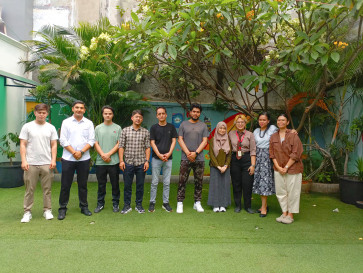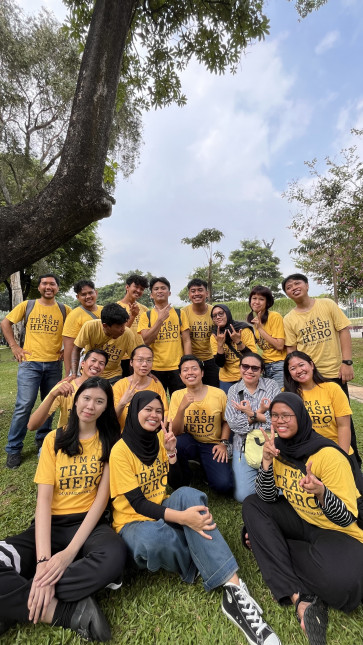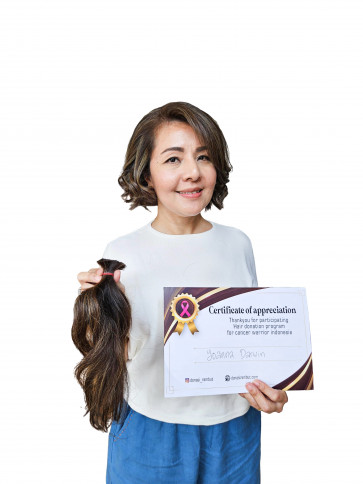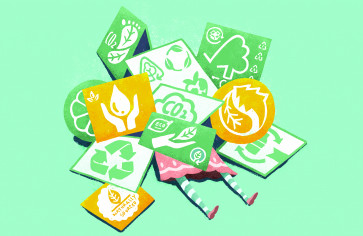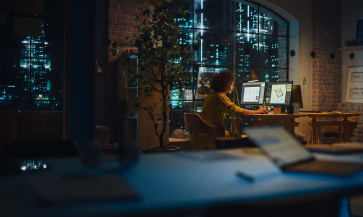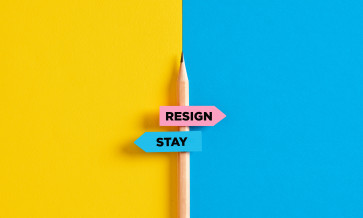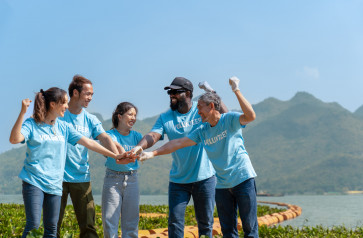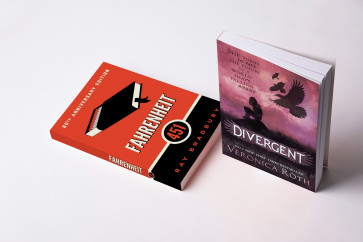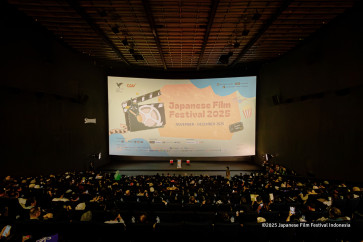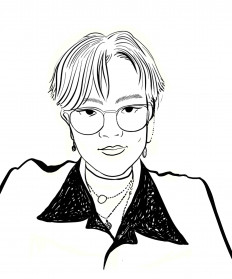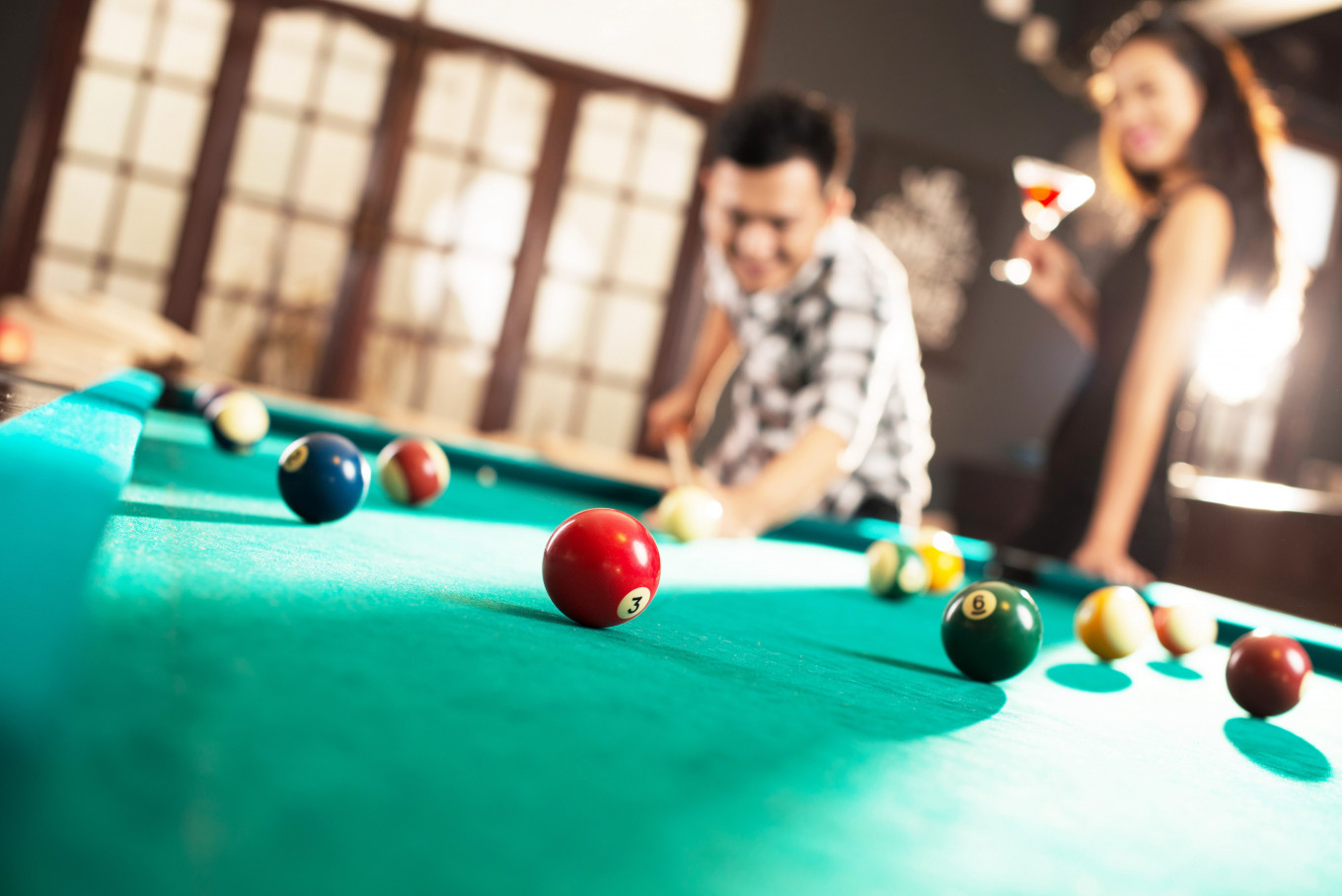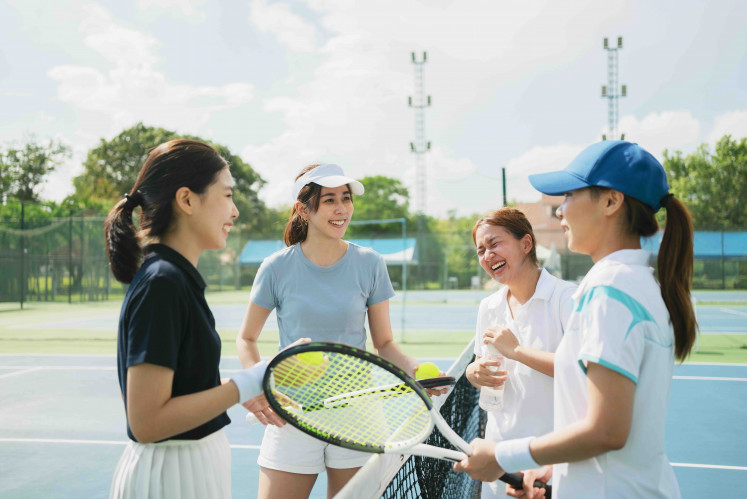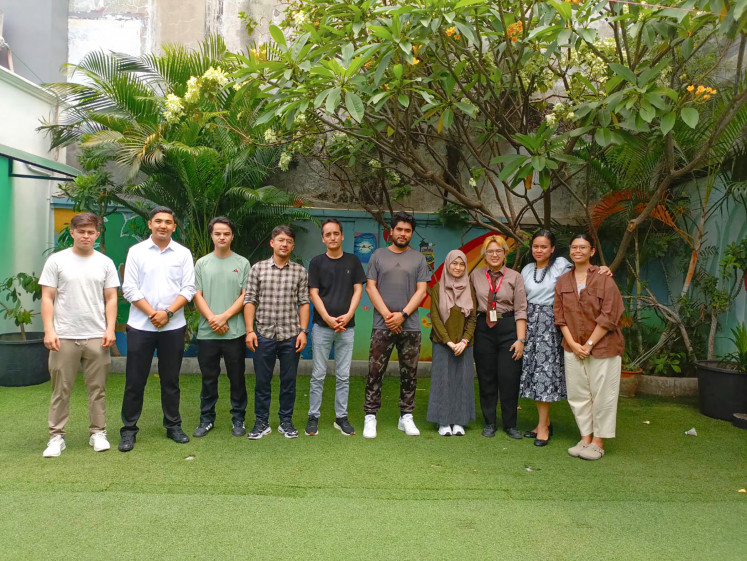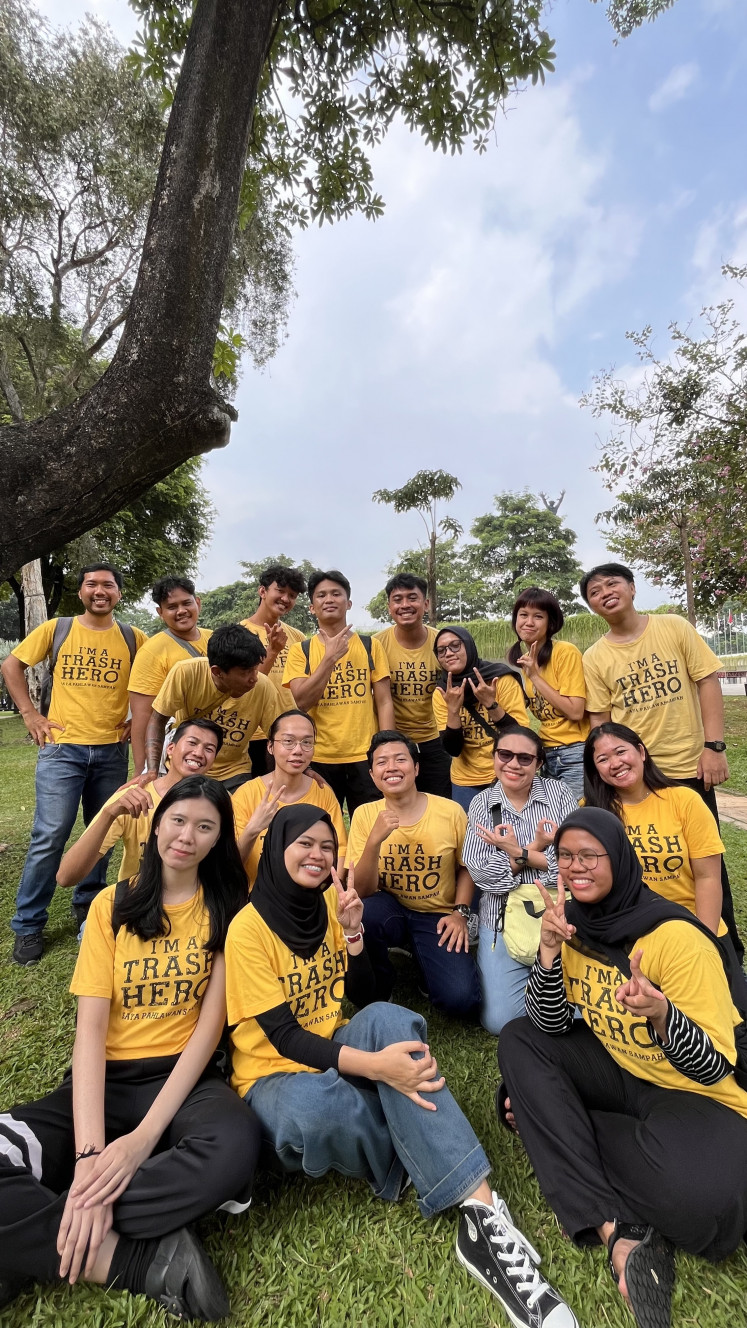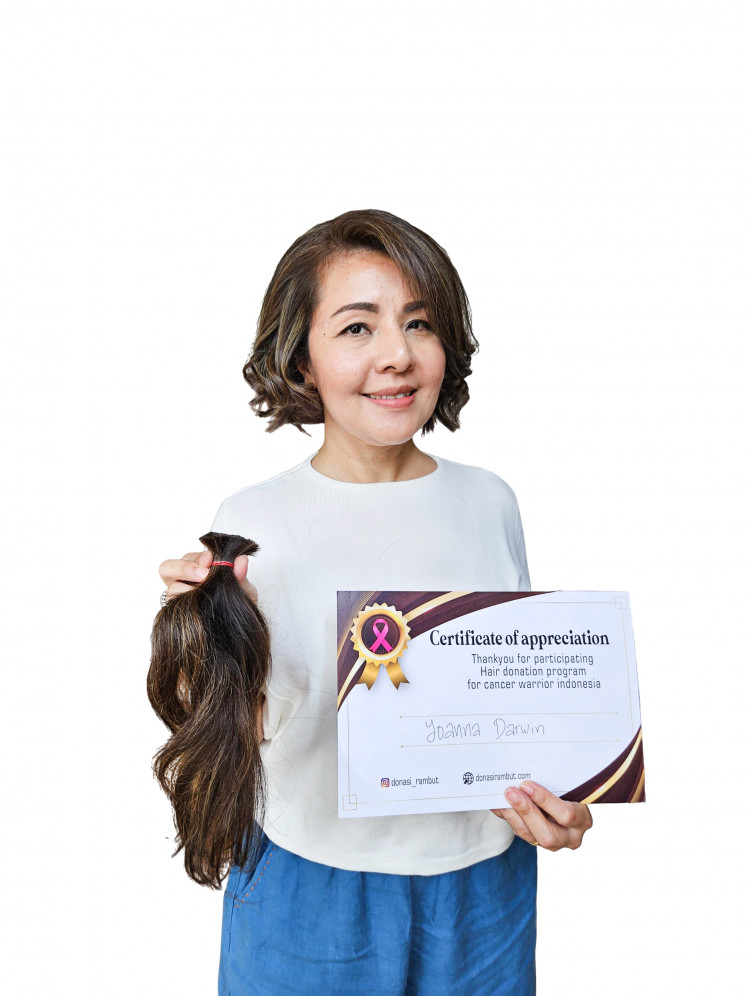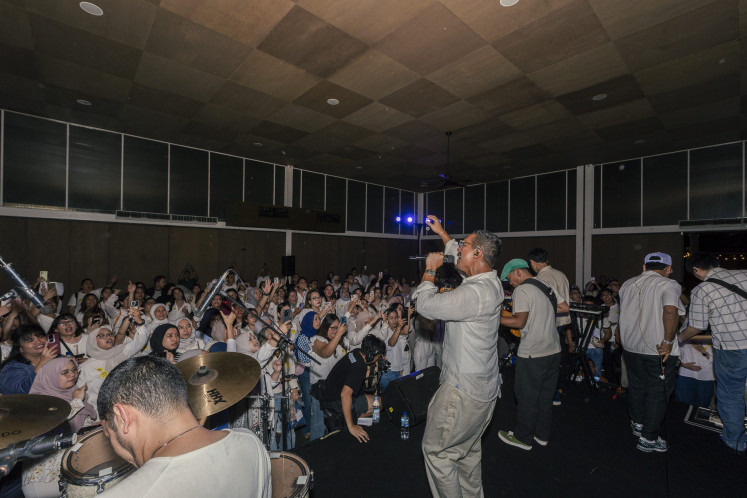Let’s face it, making new friends as an adult is hard. Between packed schedules and the pull of old routines, many of us stick to the same small circles.
But on Jakarta’s futsal fields, padel courts and billiard tables, strangers are becoming teammates, and sometimes even friends, thanks to a wave of apps designed to get people playing together. Building on the strong demand for community, social sports platforms like Reclub, AYO and Sporthood are booming.
“Being social is not easy, right? Because you have your circle, you have your job,” says United States-based Luis Aloma, cofounder and chief community officer of Reclub.
“The idea of Reclub started in 2018. My cofounder, Tony Ho, wanted to find tennis partners, but he's not very active on social media. Being someone who's great at developing apps, he created one to find local tennis partners to join a local game.”
I was one of those looking for people who shared my interest in sports. As an introvert fresh out of college, fitness had always been a solo act for me. Though I love info-dumping new strength training routines like an annoying gym bro to my sedentary friends, they never budged. And so I bit the bullet and downloaded Reclub.
Scrolling through, I found a women’s-only billiards club. To my surprise, a meet-up was already lined up that week. Having joined one too many dead group chats, I was skeptical. But this group actually seemed to show up every week.

Thank you!
For signing up to our newsletter.
Please check your email for your newsletter subscription.
And so I went, without expectations and with a whole lot of social anxiety.
No pressure, all play
On the way to the meetup at a billiards bar in FX Sudirman, Central Jakarta, my biggest worry was: What if I wasn’t as good as the others?
The club page promised a “casual meet-up” that was “open to all skill levels”. Sure enough, I arrived to see someone being taught how to hold a cue stick. That set the tone.
Before long, we were swapping tricks, cheering even at bad shots and laughing when one player kept sinking the cue ball. During one round, I pocketed the 8-ball immediately, losing the game for my team, but no one cared.
Instead of shame, I felt joy. As a beginner, playing with five other people who are enthusiastic but not demanding was like hitting a jackpot.
The atmosphere was intentional.
“I want to create a safe and comfortable space for people of all spectrums,” says Vio, the club admin.
“We want to focus on fitness, so when sexist comments and sexual statements are thrown around, it really kills the vibe.”
After experiencing harassment herself in male-dominated sports, Vio was determined to create a community that respects one another. Not even one sexist joke can slide. She also chooses smoke-free areas for the meetups.
Welcome to the club
While playing, small talks about our age, jobs and neighborhoods floated in. I realized these weren’t the people I’d usually hang out with. Half of them were millennial women in their 30s. That’s the magic of the app, it nudges you out of your comfort zone.
“These sports are inherently very social. They're all about mixing and meeting new people. You're then connecting." - Luis Aloma, Reclub
It’s not unusual to meet players who are much older or more experienced. Vio notices the same thing in the games she organizes. Instead of gatekeeping, the so-called veterans are eager to pass the sticks to the next generation.
“I meet a lot of older people born in the 1980s who have played billiards for 20-ish years,” Vio explains.
“They were very willing to teach us inexperienced millennials and Gen Zs.”
For beginners, the vibe is supportive. Between rounds, tips and tricks are exchanged, sometimes with detailed instructions and often with hands-on demonstrations. The games may be casual, but the focus is still on pool.
“Going into it, I wanted to learn tips from other players and find out nice places to play at,” says Elvita, an older Gen-Z and first-timer.
“But I managed to also meet people of varying professions with the same hobby. There are new things I discovered while playing together.”
Some join to learn, others to share knowledge, and some even to make a living. Weno Yapperson uses apps like Reclub, Playtomic, KUYY! and Super Padel to sustain his work as a tennis and padel coach.
“It's important to be in a community for tennis or padel because they spread positivity,” he says.
“We're not toxic, we play together and push each other so we can grow.”
From screen to court to friendship
Mixing a hobby with the chance to meet new people feels like a recipe for fun, and that’s by design.
“We felt that there was a big enough desire for like-minded individuals to come together, share ideas and belief systems. This is where we want to focus on,” Reclub’s Aloma says.
The appeal is clear. More than 150,000 Jakartans have so far downloaded Reclub, according to Aloma.
“These sports are inherently very social. They're all about mixing and meeting new people. You're then connecting. And the people you play with today may be different tomorrow,” he explains.
And some of these connections don’t stop on the court.
“I became mutuals on Instagram with the people I played with,” Vio shares.
“Once we’ve played on the court, our conversations evolve from small talk to more personal things.”
Sometimes, the apps uncover connections closer than expected.
“I keep in touch with a fellow Tennis club member on Reclub because it turns out we live in the same apartment,” says Wulan, 36, who’s been using the app since 2023.
Community sports apps like Reclub, AYO, and Sporthood blend sports with social life, helping people connect with other players and join active communities. (Shutterstock)
Some sports may not be solitary by nature, but adulthood often makes them feel that way. Community sports apps bridge the gap, connecting people who might otherwise remain strangers. Fitness is vital, but so is community.
As Elvita puts it: “Recently, many of us feel lonely, friendless and scared or ashamed to do things alone. It's helpful to have these communities in our lives.”
“I realize how important these communities are in the era of social media and online interaction, especially when we live in cities. These real-life interactions are grounding for our mental health.”
That’s also my takeaway. Beyond the skills or the sweat, what I found was community. The hardest step is showing up, but now that step might just be a tap away.
“I love the fact that Indonesians have been able to grow communities and provide a place for locals to learn a new way of playing sports,” Aloma says.
“It’s helping the country become more social, which is good for health, for society and for all of us.”
— With contributions from Sheena Suparman.
Siti Syafania Kose is an intern for The Jakarta Post’s Creative Desk. They read tarot with a collection of decks that they suspect have personalities of their own.





